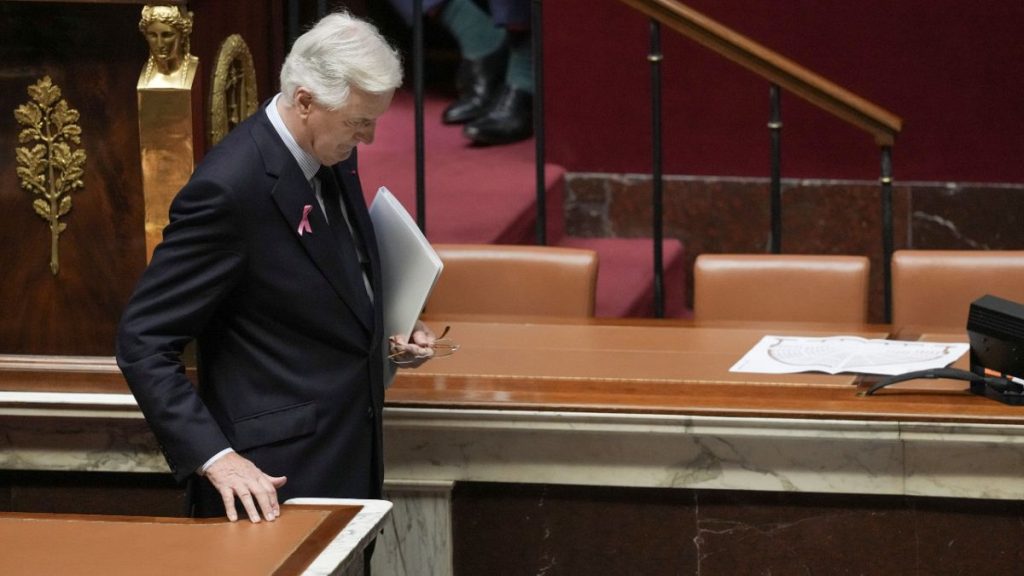The European Union is closely monitoring the political dynamics in France, particularly the situation surrounding Prime Minister Michel Barnier’s government, which is at risk of collapse. Barnier, who assumed office in September leading a minority coalition from the Christian Democrat party (Les Républicains), is currently managing a critical budget proposal aimed at reducing France’s public deficit. With the deficit projected at 6.1% for the current year, the government intends to lower it to 5% by 2025. Nonetheless, according to Andreas Eisl from the Notre Europe think-tank, while France is not in immediate jeopardy concerning debt sustainability, prolonged political turmoil could spiral into a more significant fiscal issue if the government fails to stabilize the budgetary framework over the long term.
The pressures confronting Barnier are multifaceted and intense. He faces domestic opposition from both the far right and left, both of whom have expressed intentions to propose a vote of no-confidence against his leadership. In addition to addressing these internal challenges, Barnier must navigate compliance with the European Stability and Growth Pact, which is critical for maintaining France’s status as the EU’s second-largest economy, contributing 16.6% to the bloc’s GDP. To tackle the budgetary concerns, Barnier has unveiled a €60 billion plan that combines €40 billion in spending cuts with €20 billion in new revenue. However, the true source of volatility in the markets currently stems from the persistent political gridlock, rather than economic factors.
Commentators like Florence Autret have raised concerns regarding the implications of a potential collapse of Barnier’s government. In such a scenario, uncertainty looms over whether President Emmanuel Macron would retain Barnier, appoint a new prime minster, or resign himself. The possibility of Macron’s resignation would trigger a series of elections and protracted political campaigning, which could stall France’s engagement in EU decision-making processes. This political uncertainty, combined with the prospect of Macron stepping down, raises critical questions about the stability of governance in France, which has serious ramifications for European cohesion and policy formulation.
The ramifications of political instability in France are likely to extend beyond its borders, especially in the context of ongoing negotiations and decision-making within the EU. With Paris historically playing a significant role in shaping EU policies, a weakened France could hinder the collective ability of EU member states to address pressing geopolitical, industrial, and climate-related challenges. The need for swift and decisive policy action at the European level becomes even more critical as the bloc grapples with its priorities amid shifting global dynamics.
Should Barnier’s government falter and political speculation increase, the focus of French politics may shift away from urgent economic reforms and toward electoral strategies. A period of political turbulence would divert attention from critical legislative processes, leaving France largely incapacitated in its role within the EU. As the member states strive to advance institutional objectives, the lack of a stable and decisive French government could impede progress on vital initiatives that require robust collective action and leadership.
Ultimately, the emerging political crisis in France encapsulates a precarious moment for both the national government and the European Union. The intersection of budgetary management and political stability presents a dual challenge that must be addressed thoughtfully. As Barnier seeks to navigate these turbulent waters, the consequences of his government’s fate could resonate far beyond domestic boundaries, shaping the future landscape of EU politics and its capacity to respond to evolving challenges on the continent. The unfolding events in France underscore the intricate balance between national governance and broader European integration, emphasizing the need for consensus and cooperation in uncertain times.














